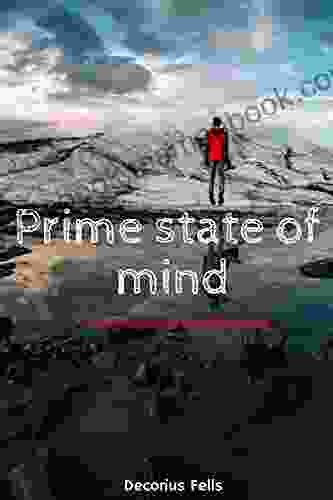Sonnets to Orpheus by Rilke: Exploring the Depths of Love, Loss, and the Creative Impulse

5 out of 5
| Language | : | English |
| Paperback | : | 70 pages |
| Item Weight | : | 3.84 ounces |
| Dimensions | : | 6 x 0.16 x 9 inches |
| File size | : | 2107 KB |
| Text-to-Speech | : | Enabled |
| Screen Reader | : | Supported |
| Enhanced typesetting | : | Enabled |
| Print length | : | 1 pages |
| Lending | : | Enabled |
Rainer Maria Rilke's Sonnets to Orpheus, originally written in German and published in 1923, stands as a towering achievement in modern literature, captivating readers with its profound exploration of love, loss, and the creative impulse. This collection of 55 sonnets, written in the aftermath of the First World War, reflects Rilke's own experiences of grief and transformation, offering a timeless meditation on the human condition.
The Orphic Myth: Love, Loss, and Rebirth
The sonnets draw inspiration from the ancient Greek myth of Orpheus, a legendary musician and poet whose music possessed the power to charm nature and even the underworld. After his beloved Eurydice dies from a snakebite, Orpheus descends into the underworld to retrieve her. However, his attempt to bring her back to the world of the living fails when he turns to look at her before reaching the surface, causing her to vanish forever. The myth serves as an allegory for the transformative power of love and the inevitability of loss.
The Language of Loss and Grief
Throughout the sonnets, Rilke explores the profound pain and longing associated with loss. His words capture the raw emotions of grief, the sense of emptiness and yearning that lingers in the wake of a loved one's absence. In Sonnet I, he writes:
O Orpheus sing! There is no other task for you, in this prodigious world, where, grievously, trembling existence breaks away from you, persists and yet, more grievously, remains.The speaker's voice is filled with despair and a longing for release from the pain of loss. Yet, even in the midst of his sorrow, Rilke finds moments of beauty and solace in the act of remembrance and the creative process.
The Creative Impulse as Consolation
In the face of loss, Rilke turns to the transformative power of art and poetry as a source of consolation. The act of creating becomes a way to honor the memory of the departed and to find meaning in the midst of chaos. In Sonnet II, he writes:
And when the trembling bowstring of your lyre is suddenly released, how will your heart endure the shock of all those arrows, as they veer toward the resounding targets of your song?The image of the lyre and the arrows suggests the transformative power of music and poetry. The act of creating art becomes a way to release the pent-up emotions of grief and to find a sense of purpose and meaning.
Rilke's Modernist Poetics
Sonnets to Orpheus is a testament to Rilke's modernist poetics, characterized by its fragmented structure, elliptical language, and emphasis on interiority. Rilke breaks away from the traditional sonnet form, creating a more fluid and experimental style that reflects the complexities of modern experience. His use of metaphor and symbolism allows for multiple interpretations, inviting readers to engage with the text on a deeply personal level.
Legacy and Impact
Sonnets to Orpheus has had a profound impact on subsequent generations of poets and writers. Its exploration of love, loss, and the creative impulse continues to resonate with readers today, offering insights into the human condition and the transformative power of art. The collection has been widely translated and studied, inspiring new interpretations and adaptations across disciplines.
Rainer Maria Rilke's Sonnets to Orpheus is a masterpiece of modern literature, a profound meditation on love, loss, and the creative impulse. Its fragmented structure, elliptical language, and emphasis on interiority reflect Rilke's modernist poetics, inviting readers to engage with the text on a deeply personal level. Through his exploration of the Orphic myth, Rilke offers a timeless reflection on the human condition, reminding us of the transformative power of art and poetry in the face of adversity.
5 out of 5
| Language | : | English |
| Paperback | : | 70 pages |
| Item Weight | : | 3.84 ounces |
| Dimensions | : | 6 x 0.16 x 9 inches |
| File size | : | 2107 KB |
| Text-to-Speech | : | Enabled |
| Screen Reader | : | Supported |
| Enhanced typesetting | : | Enabled |
| Print length | : | 1 pages |
| Lending | : | Enabled |
Do you want to contribute by writing guest posts on this blog?
Please contact us and send us a resume of previous articles that you have written.
 Top Book
Top Book Novel
Novel Fiction
Fiction Nonfiction
Nonfiction Literature
Literature Paperback
Paperback Hardcover
Hardcover E-book
E-book Audiobook
Audiobook Bestseller
Bestseller Classic
Classic Mystery
Mystery Thriller
Thriller Romance
Romance Fantasy
Fantasy Science Fiction
Science Fiction Biography
Biography Memoir
Memoir Autobiography
Autobiography Poetry
Poetry Drama
Drama Historical Fiction
Historical Fiction Self-help
Self-help Young Adult
Young Adult Childrens Books
Childrens Books Graphic Novel
Graphic Novel Anthology
Anthology Series
Series Encyclopedia
Encyclopedia Reference
Reference Guidebook
Guidebook Textbook
Textbook Workbook
Workbook Journal
Journal Diary
Diary Manuscript
Manuscript Folio
Folio Pulp Fiction
Pulp Fiction Short Stories
Short Stories Fairy Tales
Fairy Tales Fables
Fables Mythology
Mythology Philosophy
Philosophy Religion
Religion Spirituality
Spirituality Essays
Essays Critique
Critique Commentary
Commentary Glossary
Glossary Bibliography
Bibliography Index
Index Table of Contents
Table of Contents Preface
Preface Introduction
Introduction Foreword
Foreword Afterword
Afterword Appendices
Appendices Annotations
Annotations Footnotes
Footnotes Epilogue
Epilogue Prologue
Prologue Bridget E Baker
Bridget E Baker United States Government Us Army
United States Government Us Army Paul Hoover
Paul Hoover Alexander Phenix
Alexander Phenix Clay Boutwell
Clay Boutwell Laura Vanarendonk Baugh
Laura Vanarendonk Baugh Dean Mosman
Dean Mosman David Stuttard
David Stuttard Blake C Clayton
Blake C Clayton Stephen Llewelyn
Stephen Llewelyn Alexander Luchina
Alexander Luchina Francis Turner Palgrave
Francis Turner Palgrave Nicole Snow
Nicole Snow Rebekka Weber
Rebekka Weber Timothy Collins
Timothy Collins Katherine Mader
Katherine Mader Bekah Harris
Bekah Harris Joe Pulizzi
Joe Pulizzi Chuck Collins
Chuck Collins Jennifer Khedr
Jennifer Khedr
Light bulbAdvertise smarter! Our strategic ad space ensures maximum exposure. Reserve your spot today!

 Avery SimmonsThe Big Bad Mary McCarthy Prize in Short Fiction: A Deep Dive into Literary...
Avery SimmonsThe Big Bad Mary McCarthy Prize in Short Fiction: A Deep Dive into Literary... Travis FosterFollow ·6.4k
Travis FosterFollow ·6.4k Philip BellFollow ·2.1k
Philip BellFollow ·2.1k Stephen KingFollow ·18.4k
Stephen KingFollow ·18.4k Jerry WardFollow ·17.5k
Jerry WardFollow ·17.5k Neil GaimanFollow ·14.4k
Neil GaimanFollow ·14.4k Ethan GrayFollow ·5.6k
Ethan GrayFollow ·5.6k Ismael HayesFollow ·10.4k
Ismael HayesFollow ·10.4k Ira CoxFollow ·6.8k
Ira CoxFollow ·6.8k

 Leslie Carter
Leslie CarterWhat We Must Do Now To Save Reproductive Freedom
Roe v. Wade, the landmark...

 Cade Simmons
Cade SimmonsThe Unbreakable Bond: Unveiling the Connection Between...
In the realm of...

 Roy Bell
Roy BellFull Contact Chapter Five: The Final Chapter of the Hatch...
In this gripping to the Hatch saga, we...

 Fred Foster
Fred FosterUnveiling the Tale of the Genpei Wars: A Comprehensive...
Deep within the annals of Japanese history,...

 Jaden Cox
Jaden CoxFerguson in Black and White: A Profound Examination of...
The Ferguson tragedy, sparked by the fatal...
5 out of 5
| Language | : | English |
| Paperback | : | 70 pages |
| Item Weight | : | 3.84 ounces |
| Dimensions | : | 6 x 0.16 x 9 inches |
| File size | : | 2107 KB |
| Text-to-Speech | : | Enabled |
| Screen Reader | : | Supported |
| Enhanced typesetting | : | Enabled |
| Print length | : | 1 pages |
| Lending | : | Enabled |











